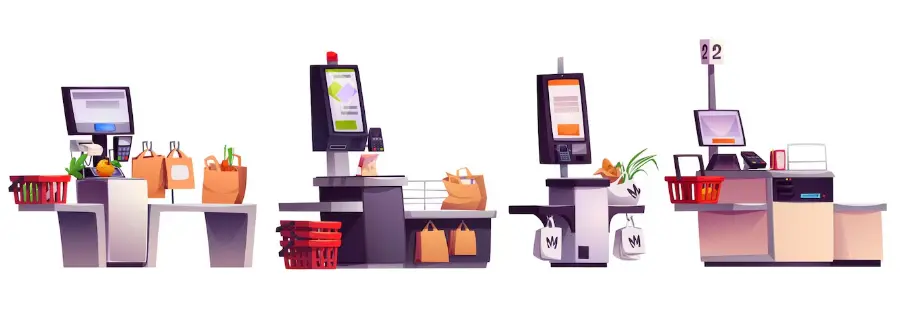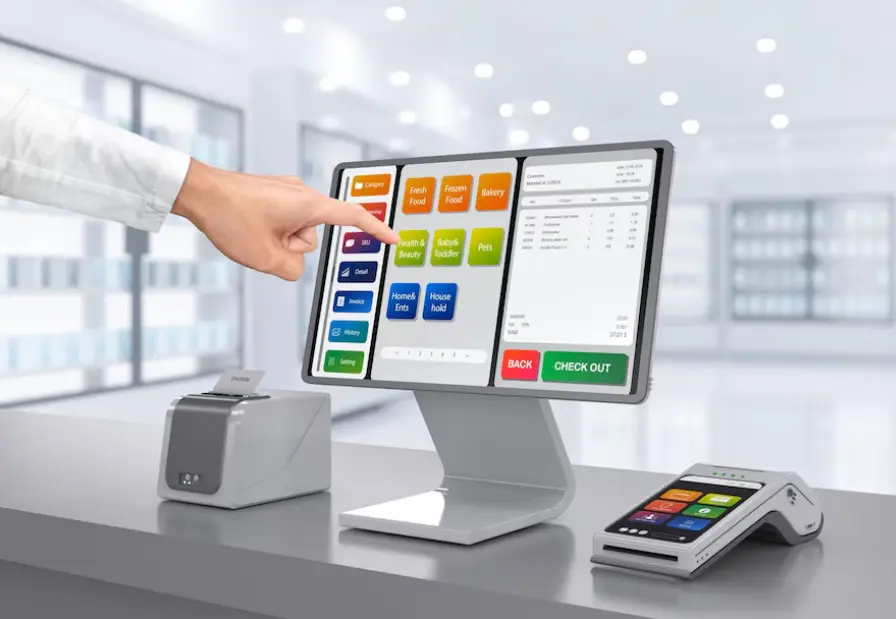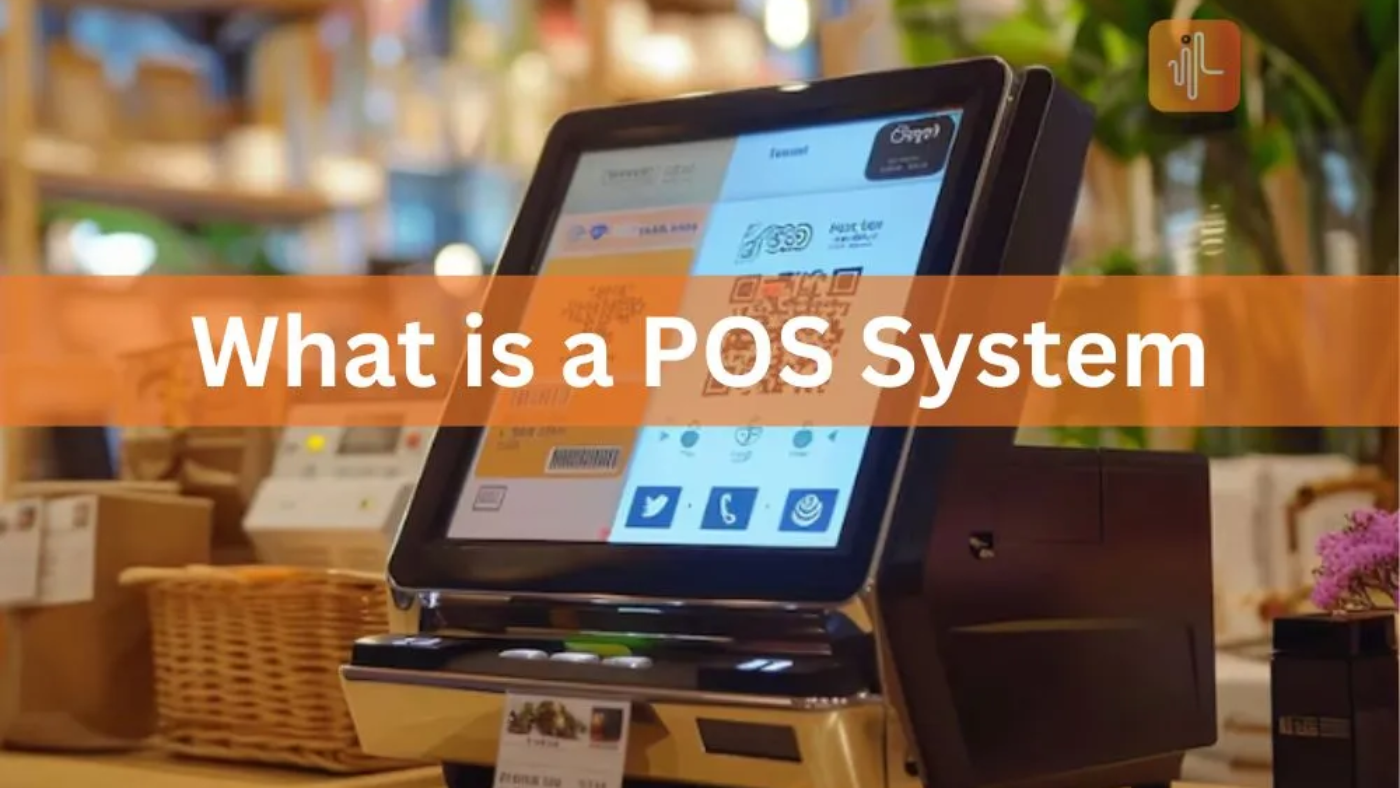In the rapidly evolving business landscape, achieving success hinges on both speed and precision. A Point of Sale (POS) system in Abu Dhabi is a crucial tool that helps businesses achieve these goals. Whether you run a retail store, a restaurant, or any other type of business, understanding what a POS system is and how it works can significantly enhance your operations. This blog will break down the fundamentals of POS systems, explaining their components, how they function, and the benefits they offer.
What is a POS System?

A Point of Sale (POS) system integrates hardware and software to facilitate transactions for businesses. At its core, a POS system records sales, processes payments, and manages other critical aspects of retail and service operations. Modern POS systems in Abu Dhabi go beyond simple cash registers, offering a wide range of features designed to streamline various business processes.
Key Components of a POS System
- Hardware:
- Terminal: The main device where transactions are processed. This could be a computer, tablet, or specialized POS hardware.
- Barcode Scanner: Used to quickly scan product barcodes, reducing manual entry errors.
- Receipt Printer: Prints transaction receipts for customers, which are essential for returns and maintaining accurate records.
- Cash Drawer: Stores cash securely and opens automatically during transactions.
- Card Reader: Processes credit and debit card payments, often including contactless payment options like NFC.
- Software:
- POS Software: The core of the system, which manages sales transactions, inventory, and customer data. It often includes features for reporting, analytics, and integrating with other business tools.
- Database: Keeps records of transaction details, inventory quantities, and customer data. This database is crucial for accurate record-keeping and generating reports.
How Does a POS Software System Work?

- Processing Sales:
- Product Scanning: When a customer makes a purchase, the cashier scans the product’s barcode using the barcode scanner. The POS machine in Abu Dhabi pulls product information from the database, including details such as price and description.
- Transaction Entry: The POS system adds the scanned items to the transaction list. Additional items can be added manually if needed.
- Handling Payments:
- Payment Methods: The POS system processes various payment methods, including cash, credit/debit cards, and mobile payments. For card transactions, the card reader securely transmits payment details to the payment processor.
- Transaction Confirmation: Once the payment is processed, the POS system confirms the transaction and updates the sales records. For card payments, this involves authorization from the card issuer.
- Generating Receipts:
- Receipt Printing: After the transaction is completed, the POS system sends the details to the receipt printer. A printed receipt provides the customer with proof of purchase and helps with returns or exchanges.
- Updating Inventory:
- Inventory Management: The POS software automatically updates inventory levels based on the sales data. This real-time update allows businesses to keep stock levels precise and streamline the reordering process.
- Reporting and Analytics:
- Sales Reports: The POS system generates various reports, such as daily sales summaries, peak transaction times, and sales by product category. These reports offer crucial insights into the company’s performance.
- Customer Insights: POS systems can track customer purchase history and preferences, allowing businesses to tailor their marketing efforts and improve customer service.
Benefits of Using a POS

- Increased Efficiency:
- Faster Transactions: Scanning barcodes and processing payments electronically speeds up the checkout process, reducing wait times for customers.
- Reduced Errors: Automated data entry minimizes the risk of human errors, leading to more accurate transactions and inventory management.
- Enhanced Inventory Management:
- Real-Time Tracking: Automatic updates to inventory levels help businesses avoid stockouts and overstock situations.
- Inventory Insights: Detailed reports on inventory performance enable better decision-making and more effective stock management.
- Improved Customer Experience:
- Faster Checkout: Efficient transaction processing and receipt printing enhance the overall shopping experience.
- Loyalty Programs: Integrating with loyalty programs enables businesses to reward returning customers and foster brand loyalty.
- Comprehensive Reporting:
- Data-Driven Decisions: Access to detailed sales and customer data helps businesses make informed decisions and identify trends.
- Performance Tracking: Regular reports on sales, inventory, and customer behavior support strategic planning and operational improvements.
- Enhanced Security:
- Secure Transactions: Modern POS systems use encryption and secure payment gateways to protect customer payment information.
- Data Protection: POS systems offer various security features to safeguard sensitive business and customer data.
Conclusion
A Point of Sale machine in Abu Dhabi is essential for contemporary businesses, offering an all-in-one solution for handling sales, payments, and inventory management. By understanding how POS systems work and leveraging their features, businesses can enhance efficiency, improve customer experiences, and make informed decisions based on real-time data. Whether you’re upgrading from a traditional cash register or implementing a new POS system, embracing this technology can significantly benefit your operations and contribute to your business’s success.


Add a Comment